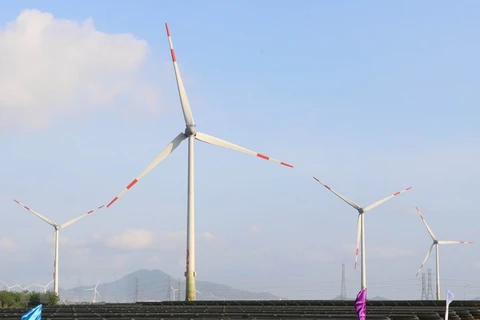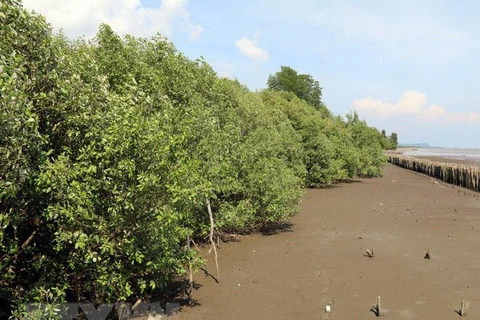Hanoi (VNA) - The Ministry of Natural Resources and Environment has recently sent an official dispatch to the ministries, branches, localities, socio-political organisations, associations, businesses and related units on the organisation of activities during an action month for the environment in response to World Environment Day (June 5) and International Day of Biological Diversity (May 22).
The ministry called on agencies and organisations to deploy radical solutions to restore the ecosystem, protect the environment, conserve nature, plant trees, collect and treat waste.
According to the Intergovernmental Science-Policy Platform on Biodiversity and Ecosystem Services (IPBES), the ecosystems on the earth - the foundation of life - is deteriorating severely. The consumption of wildlife products and destruction of habitats have been making it easier for infectious diseases to transmit to humans.
If humans do not change their behaviours towards the nature, pandemics will occur frequently in the future, harm more people, and cause worse losses to the global economy compared to the COVID-19 pandemic, the IPBES noted.
The UN Environment Programme selected “Ecosystem Restoration” as the theme for World Environment Day 2021 with a view to uniting all countries around the world in protecting and reviving ecosystems, for the sake of both humans and nature. The Day also marked the launch of the UN Decade on Ecosystem Restoration (2021 - 2030).
The theme of World Environment Day 2021, “Ecosystem Restoration”, is closely associated with that of this year’s International Day for Biological Diversity (May 22), “We’re part of the solution #ForNature”, launched by the Secretariat of the Convention on Biological Diversity.
With the same goal towards “green life,” this year's International Day of Biological Diversity was also launched on a global scale with the goal of raising public awareness of biodiversity.
The slogan “We’re part of the solution” was chosen to be a continuation of the momentum generated last year under the over-arching theme, “Our solutions are in nature”, which served as a reminder that biodiversity remains the answer to several sustainable development challenges.
Vietnam has been working hard to carry out synchronous nature-based solutions during the building of national, regional, and provincial zoning plans; the establishment and management of nature reserves; and the implementation of models for conservation and sustainable use.
According to the Nature and Biodiversity Conservation Agency at the Vietnam Environment Administration under the Ministry of Natural Resources and Environment (MoNRE), the areas with important natural ecosystems in Vietnam have been narrowing. The natural forest area shrank from 12 million hectares in 1945 to 2.8 million hectares in 2017.
In terms of marine and coastal ecosystems, hard corals have also been declining. Data showed that up to 63.5 percent of coral reefs are in bad conditions, with the coverage of less than 25 percent. The number of wild species and their populations have also fallen sharply. Many species with high values have even been pushed to the brink of extinction.
Facing that fact, the MoNRE held that it is necessary to conduct analyses to serve as the basis for implementing major policies while conservation awareness must be promoted, practical action taken, and an implementation roadmap devised.
As the degradation of ecosystems will lead to ecological imbalance which in turn will directly affect humans’ living environment and threaten the country’s sustainable development, Vietnam has been working to expand nature reserves and conserve the natural ecosystems of national and international importance.
In particular, it has enhanced the protection of primeval forests to ensure the area of protected primeval forests is kept at 0.57 million hectare, taken measures to prevent deforestation and illegal logging, and carried out plans to recover coastal mangrove forests./.
























